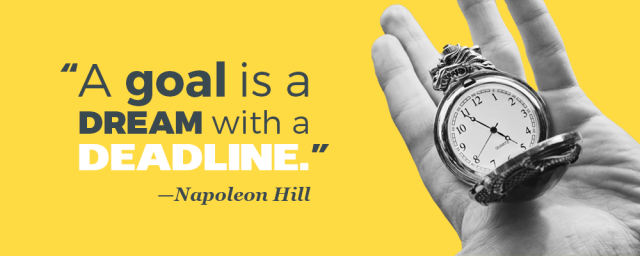
Choosing goals, particularly when I was starting out, may have seemed daunting, but I set small targets to aim for.
Having a running goal, however big or small, can help you to keep focused and motivated. Your running goals can be ambitious or otherwise, but they should remain personal to you and relevant to your own training targets. Whether you’re setting out to be able to run a set distance or are planning on entering your first race, as you progress through your goals, you will find that your motivation and enjoyment increase.
Choosing your running goals
The acronym ‘SMART’ is the best way of remembering the criteria for choosing running goals.
S = Specific. Make your running goals precise, so rather than saying you want to run further, why not say you want to able to complete a 3km run inside 20 minutes by the end of the month.
M = Measurable. You need to be able to prove that your running target has been reached. Don’t guess when you’ve reached your goal, but monitor your improvement with a stopwatch, GPS unit or equivalent.
A = Achievable. Your running goals must be able to achievable. Don’t set something that your not going to be able to achieve because that will be demoralising. Running in your local half marathon would be an achievable goal, while a top 20 finish in that race may not.
R = Realistic. Have some common sense when setting goals. Setting a target of improving your half marathon time by an hour this year is an extremely difficult target. However, a goal of improving your half marathon run time by minutes is likely to be more realistic.
T = Time-related. Make your goal time-related because you can then create a deadline to work towards. ‘When I run this event next year, I want to improve my time by 20 minutes’ is a good time-related goal.
Now that you know the best criteria to use when choosing running goals, our top tips for running beginners should help you on your way:
1
Running continuously for a short distance doesn’t comes as easily to some as it does to others, so setting yourself the goal of running non-stop over whatever distance you feel is a suitably challenging is a good way to start. This could be as simple as running to the end of the street, once around your local park, or even a distance of several kilometres. Whatever distance you choose, build up gradually and reward yourself when you reach your target, and then set another one.
2
Regular running for beginners means getting out at least twice a week. It is better to run twice a week every week, than to run half a dozen times one week and then do no running for the next three weeks. By getting some continuity in your run training, your running will improve as your body adapts to the consistent training stimulus.
3
Ask any runner who has been at it a number of years and they will probably all be able to remember when they first ran specific distances, be it one kilometer, 10 k, or even a marathon. The time is often immaterial to them at first; covering the distance is what counted. Record your distance goals over time, perhaps in a blog, so that you can see your progression.
4
Completing a race has to be your ultimate goal. It encompasses every aspect of the SMART acronym and will put proper focus into your training. With an event on the horizon, this may force you outside to run, even when the weather’s not too great. Your race goal could be a local fun run or a mass-participation 5k or 10k – or maybe even an unusual race over a non-standard distance.
5
Your running goal doesn’t necessarily have to be about a specific running target. Many people take up running to lose weight. Like when setting distances to run, you should set a safe amount of weight to aim at losing each week. This should be approximately 1kg (2.2 lbs). You can then calculate how long it should take you to reach your weight loss goal and monitor this week by week.
6
This may sound like an unusual goal, but for some people running can be a means of weight management only rather than running for enjoyment. Running can offer so much more, from an opportunity to get away from it all, to the achievement of finishing an event that you’ve trained months for. To get the most out of your running, mix up your training and try different routes, terrains, and events.
7
Everyone, regardless of their competitiveness, likes to see improvements, and setting a personal best time at a race, or even in training, is a huge motivator. To help you achieve this, follow a structured training plan that includes race specific speed-work.
8
Many people enter a race specifically because they want to raise money for a cause that means something to them personally. By choosing a charity that has a special meaning to you will make the fundraising easier because sponsors will see your passion and understand the reasons why you are raising money for that organisation.
9
For many runners, particularly if they are not very competitive, the goal of being able to continue to run long-term is an excellent motivator. To stay injury-free will require lots of preparation including maintaining correct nutrition and hydration, working on flexibility, doing resistance training, having sports massages, and taking appropriate rest.
10
The more competitive of you out there will want to do this. To achieve this goal you have to be extremely dedicated and prepared to make running a focal point by fitting in consistent, quality training over a long period.
Go for it!
With a top ten like that, there should be no shortage of motivation when you next lace up your trainers. Give yourself some goals to aim for. Whatever you choose, your running experience will be increasing all the time as will the distance in your legs.
What do you think about running? Do you agree with these goals? Share your thoughts in the comments below. Thank you.






